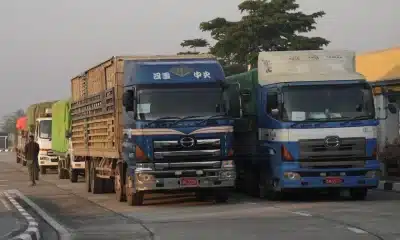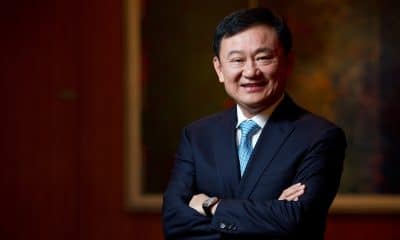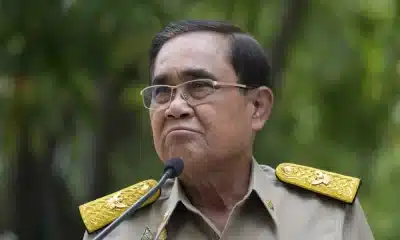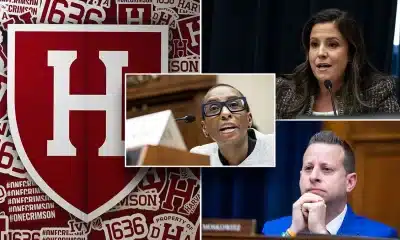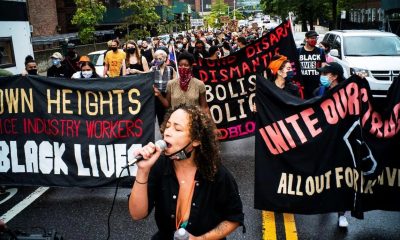Election News
Thailand Opposition Parties, After Stunning Election Win.
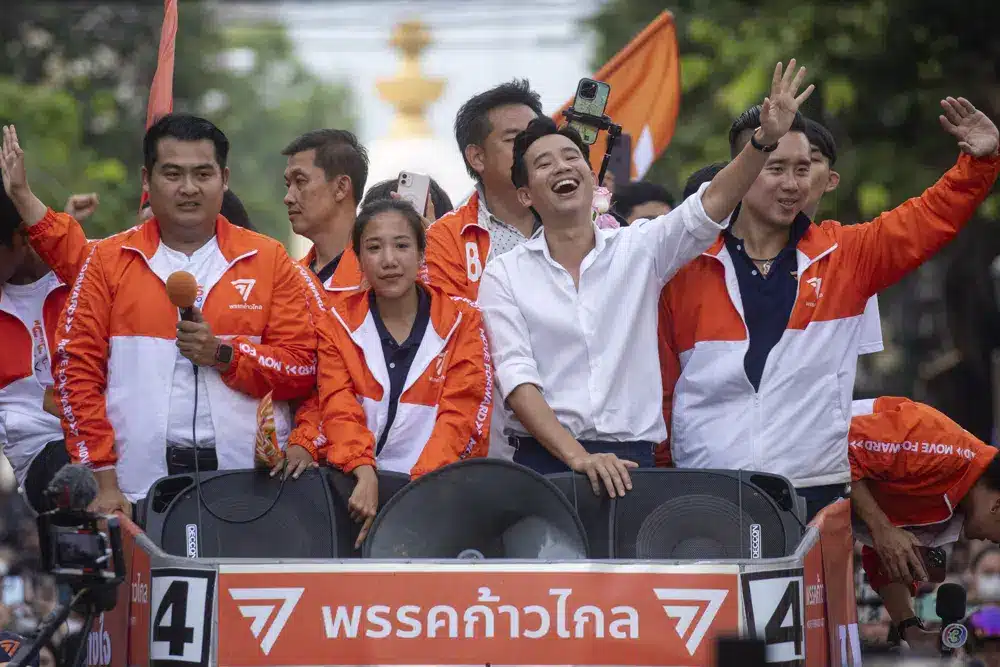
BANGKOK, Thailand — Thailand’s main two opposition parties began preparations for the next step of their bid to oust the military-dominated government on Monday, following a shock election triumph in which they secured a majority of seats in the House of Representatives.
The Move Forward Party, led by 42-year-old businessman Pita Limjaroenrat, won the election, outperforming most predictions. It narrowly defeated the Pheu Thai party, which was widely expected to win the election.
Despite the star power of Paetongtarn Shinawatra, daughter of Thaksin Shinawatra, the former populist prime leader who was deposed in a 2006 military coup and who is the driving force behind the party, Pheu Thai has faltered.
“The overwhelming electoral victory by Move Forward and Pheu Thai is a decisive sign that voters want a polity where the people, not the military, decide their future,” said Tyrell Haberkorn, a University of Wisconsin Thai studies scholar.
“Voters want a Thailand with free speech, without compulsory military conscription, and where the people’s voices are valued, not something to be silenced or bought,” she stated.
Pita stated on Monday that he has been in discussions with five other parties about building a coalition government. It would have 309 House seats in total, which would be more stable than the previous 292-seat partnership with Pheu Thai as the sole ally. Parliament will choose a new prime minister in July, giving them roughly two months to reach an agreement.
On Monday afternoon, supporters of Move Forward paraded through Bangkok’s streets to celebrate their triumph. Pita smiled broadly and waved as an open truck convoy brought him and other party members gently through the streets of the capital’s historic quarter.
Thailand has been led for the past nine years by former army leader Prayuth Chan-ocha, who took power in a 2014 military coup and was re-elected prime minister following the 2019 election. He ran for reelection on Sunday, but has been chastised for a sluggish economy, a bungled early reaction to the coronavirus pandemic, and stifling democratic changes – a particular irritant among younger people.
“The sentiment of the era has changed, and it’s right,” Pita said on Monday. “And today is a new day, and hopefully it will be full of bright sunshine and hope for the future.”
Earlier, as it became evident that his party would take the lead, he stated that as the country’s 30th prime minister, he is ready to bring about change. “Whether you agree with me or not, I will be your prime minister.” I will serve you whether you voted for me or not.”
Move Forward and Pheu Thai are mainly united in their opposition to the military’s periodic meddling in politics, as seen by more than a dozen coups since Thailand became a constitutional monarchy in 1932, and most recently in 2006 and 2014.
Both parties support some aspects of monarchy reform, which irritates the traditional royalist establishment, which sees the institution as sacred. Move Forward is viewed as radical in the perspective of mainstream Thai politics since it has been more outspoken on the matter.
With nearly all votes counted as of Monday, Move Forward has won over 24% of the popular vote for 400 constituency seats and more than 36% of the votes for the 100 seats allocated under proportional representation.
The Pheu Thailand party was a close second, with a combined seat total of 141 expected.
Prayuth’s United Thai Nation Party is ranked fifth in constituency votes and third in party preferences, with a predicted total of 36 seats.
Despite the fact that the numbers favour Pita becoming the next Prime Minister, he faces a long road ahead.
Candidates are hampered by constitutional provisions created by the military regime to prevent populist political parties from taking root and upending the long-established conservative system.
The prime minister of Thailand is chosen by a combined session of the newly elected House’s 500 members and the military’s 250 senators. The winning candidate must receive at least 376 votes.
The Senate, together with the army and the courts, voted unanimously for Prayuth in 2019, allowing him to overcome Pheu Thai’s first-place finish and form a coalition government.
There is a considerable risk that Pita will be viewed as too radical by some partner parties, forcing them to seek a more moderate candidate.
Paetongtarn, Pheu Thai’s party base, is the most favoured pick. However, her ties to her father, Thaksin, with whom the military has never reconciled since deposing him in 2006, would make gaining Senate support impossible. In that situation, real estate magnate Srettha Thavisin, another Pheu Thai candidate for prime minister, would have a stronger chance.
There are also concerns that conservative groups in Thai politics would once again use dirty techniques to maintain power. Since Thaksin’s demise, they have regularly exploited the courts and ostensibly independent state bodies like the Election Commission to produce contentious legal judgements that have crippled or sunk political threats from opponents. Such tactics would very certainly spark violent street protests.
“Is Pita’s proposed coalition, with 309 seats, stable enough?” It is the most stable in a democratic world. However, in a world of half-dictatorship in which the Senate is a key component, Move Forward must leverage the Senate with the voices of the people,” said Pinkaew Laungaramsri, an anthropology professor at Chiang Mai University.
“We’ll have to wait and see if the authoritarians will dare to use their illegitimate powers against the will of the people.” If they do that, they’re just encouraging people to return to the streets, (asterisk) she remarked.
SOURCE – (AP)
Election News
India’s Modi Denies Opposing Islam or Muslims as 2024 Election Unfolds
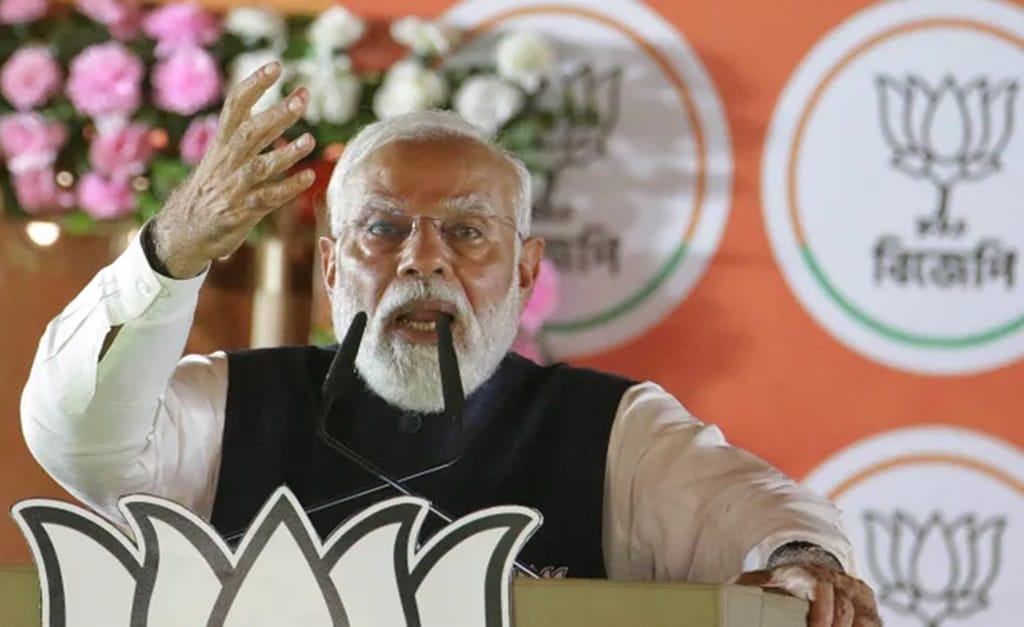
India’s Prime Minister Narendra Modi has stated that he does not oppose Islam or Muslims and encourages the community to consider their future progress as they vote in the upcoming general election, which concludes its third round on Tuesday.
Critics accuse Modi and his party of targeting minority Muslims for electoral benefit, and the claims intensified after Modi referred to Muslims as “infiltrators” with “more children” in a recent address.
He denied discriminating against Muslims and related his recent remarks to what he described as the opposition Congress party’s election plan to shift the wealth of the majority Hindus to Muslims. The Congress denies making any such promises.
“We are not opposed to Islam and Muslims,” Modi said in an interview with Times Now on Monday. “The opposition is concerned with its own profit. “The Muslim community is intelligent… the opposition is concerned that their lies have been exposed.”
Modi is running for a remarkable third consecutive term in the seven-phase election, which began on April 19 and finishes on June 1. Eleven states and territories will vote in the third phase on Tuesday, and polls indicate Modi will win convincingly when the results are announced on June 4.
His campaign began by highlighting the economic gains of the previous ten years, but after the first phase of voting, he shifted gears, denouncing rivals as pro-Muslim.
“I want to encourage the Muslim community to reflect and consider. The country is improving; if you notice any faults in your community, what is the cause? Why didn’t you receive government benefits when Congress was in power?
Analysts say Modi and his Hindu nationalist party have made inflammatory remarks to energize their hardline base since voter turnout is lower than in past years. According to Reuters, voters’ top worries are jobs and inflation.
“Think of your children and your own future,” Modi urged, alluding to Muslims and elections. “I don’t want any community to live like labourers because someone is scaring them.”
Elections in India
India’s elections are a spectacular display of democracy in action. Millions voted, seeking to influence the country’s future. However, claims of vote-buying, intimidation, and fraud frequently cloud the election process.
Rival parties accuse each other of dirty tricks, and the Election Commission strains to remain fair.
Despite the hurdles, India’s elections demonstrate the durability of its democracy. In isolated villages, the elderly and crippled face long waits to exercise their rights.
Young voters in cities swarm to polling stations, eager to have their voices heard. The campaigns are emotional events, with rallies drawing large crowds and social media playing an important part.
When the results are announced, jubilation spread across the country. The victorious party celebrates, while the losers pledge to fight another day.
But the true victors are the Indian people, who have reaffirmed their dedication to the democratic process, however faulty it may be. India’s elections serve as a reminder that democracy is a never-ending struggle, but one worth fighting for.
Election News
Indian Police Investigate Deepfake Videos as Election Heats Up
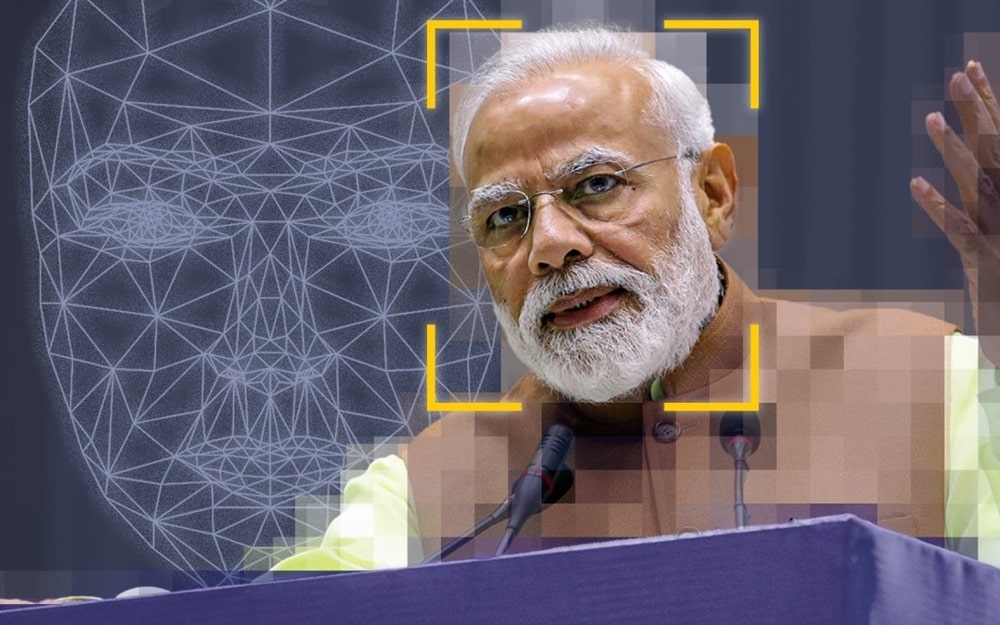
As campaigning heated up in India’s election, deepfake videos involving two top advisers of Prime Minister Narendra Modi have sparked police investigations and the arrest of some staffers from his opponent Congress party.
In what has been dubbed India’s first AI election, Modi said last week that artificial voices were being used to allegedly show leaders making “statements that we have never even thought of,” calling it a conspiracy “to create tension in society.”
Indian police, who are already investigating the spread of fake videos featuring Bollywood actors criticizing Modi, are now looking into a doctored online clip in which federal home minister Amit Shah says the ruling Bharatiya Janata Party will end certain social guarantees for minorities, a sensitive issue for millions of voters.
Shah responded to X by uploading both his “original” and the altered “fake” speech and claiming — without offering any evidence — that the main opposition Congress was behind the video it prepared to deceive the people. The minister stated: “Directions have been issued to the police to address this issue.”
Nine arrested in India
According to police comments, Indian police arrested at least nine persons last week, including six members of Congress’ social media teams, in the states of Assam, Gujarat, Telangana, and New Delhi for disseminating the phony film.
Five Congress members were released on bail, but the most high-profile arrest by New Delhi police’s cybercrime squad occurred on Friday, when they nabbed Arun Reddy, a Congress national social media coordinator, for uploading the video. In New Delhi, Shah’s government has direct control over the police. Reddy has been taken into custody for three days.
Congress staffers have protested the detention, with many posting on X with the hashtag #ReleaseArunReddy. Manickam Tagore, a Congress member, claimed the detention was an example of “authoritarian abuse of power by the regime.”
Supriya Shrinate, Congress’ head of social media, did not respond to texts or an email requesting comment. The Indian election, which will take place between April 19 and June 1, will be the world’s largest democratic event.
With almost a billion voters and over 800 million internet users, combating the spread of misinformation is a high-stakes task. It entails round-the-clock monitoring by police and election officials, who frequently issue takedown orders to Facebook and X when investigations begin.
Ai Generated Deepfake Videos
More than 500 workers in Uttar Pradesh, India’s most populous state, monitor internet content, flagging contentious messages and liaising with social media firms to remove them as needed, police chief Prashant Kumar told Reuters on Saturday.
Another deepfake video that went viral last week depicted Yogi Adityanath, the state’s chief minister, condemning Modi for not doing enough to help the relatives of those killed in a 2019 militant attack.
Though fact-checkers believed the video was made using different bits of an original tape, state police described it as a “AI generated, deepfake”.
On May 2, state police detained Shyam Gupta, who had published the phony video post on X the day before, with over 3,000 views and 11 likes.
The police have charged Gupta with forgery and inciting enmity under Indian law, which carries a maximum seven-year prison sentence if convicted. Reuters was unable to approach him since he is now serving a 14-day detention sentence.
“This person is not a technology expert. “If he had been tech savvy, we would not have been able to arrest him so quickly,” stated Police Officer Kumar.
Source: Reuters
Election News
AI Election Disinformation Surges on Social Media in India
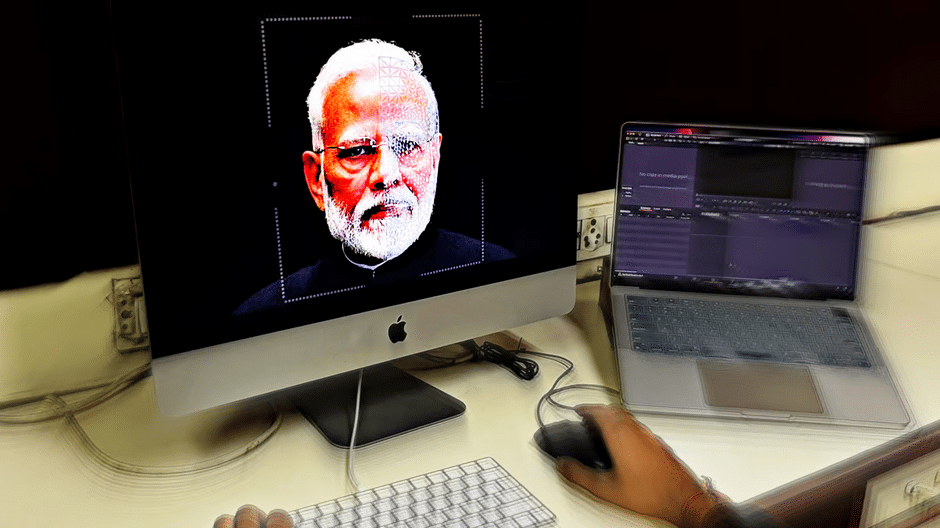
Claims circulating online in India recently misstated details about voting, claimed without evidence that the election would be manipulated, and urged for violence against India’s Muslims.
Researchers who study misinformation and hate speech in India say digital companies’ lax enforcement of their own regulations has created ideal conditions for damaging content that might alter public opinion, incite violence, and leave millions of voters unsure what to trust.
“A non-discerning user or regular user has no idea whether it’s someone, an individual sharing his or her thoughts on the other end, or is it a bot?” Rekha Singh, a 49-year-old voter, told the Associated Press. Singh expressed her concern that social media algorithms affect voters’ perceptions of truth. “So you are biased without even realizing it,” she went on to say.
In a year filled with major elections, India’s sweeping vote stands out. The world’s most populous country speaks dozens of languages and has the highest number of WhatsApp users and YouTube subscribers. Nearly 1 billion citizens are eligible to vote in the election, which will take place through June.
Google and Meta, the owners of Facebook, WhatsApp, and Instagram, say they are striving to prevent false or hateful content while assisting voters in finding credible sources. However, experts who have long followed disinformation in India believe their assurances are hollow after years of failed enforcement and “cookie-cutter” techniques that ignore India’s linguistic, religious, geographic, and cultural diversity.
According to disinformation experts that specialize in India, given the country’s size and importance to social media businesses, greater attention is likely.
“The platforms get money from this. Ritumbra Manuvie, a law professor at the University of Groningen in the Netherlands, stated, “They benefit from it, and the entire country pays the price.” Manuvie is the leader of The London Story, an Indian diaspora group that staged a protest outside Meta’s London offices last month.
The group and another organization, India Civil Watch International, discovered that Meta allowed political advertisements and posts that contained anti-Muslim hate speech, Hindu nationalist narratives, misogynistic posts about female candidates, and ads encouraging violence against political opponents.
The advertisements were viewed over 65 million times in 90 days earlier this year. They collectively cost more than $1 million.
Meta defends its work on global elections and disputes the findings of the India study, noting that it has expanded its collaboration with independent fact-checking organizations ahead of the election and has employees around the world ready to act if its platforms are used to spread misinformation. Meta’s president of worldwide affairs, Nick Clegg, stated about India’s election, “It’s a huge, huge test for us.”
YouTube in India
“We have months and months of preparation in India,” he told the Associated Press in a recent interview. “Our teams work around the clock. We have fact checkers in India who speak several languages. “We have a 24-hour escalation system.”
Experts think YouTube is another significant disinformation source in India. To see how well the video-sharing platform enforced its own rules, researchers from the organizations Global Witness and Access Now constructed 48 fake ads in English, Hindi, and Telugu that contained inaccurate voting information or calls to violence.
One stated India changed the voting age to 21, although it remains at 18, and another claimed women could vote via text message, which they cannot. A third advocated for the use of force at polling locations.
When Global Witness submitted the commercials to YouTube for approval, the answer was unsatisfactory, according to Henry Peck, an investigator with Global Witness.
“YouTube didn’t act on any of them,” Peck explained, instead approving the commercials for release.
Google, YouTube’s owner, rejected the study and stated that it had several procedures in place to detect ads that breach its policies. Global Witness said the ads were removed before they could be identified and prohibited.
“Our policies explicitly prohibit ads making demonstrably false claims that could undermine participation or trust in an election, which we enforce in several Indian languages,” the company said in a statement. The corporation also mentioned its relationships with fact-checking organizations.
AI deepfakes
AI is this year’s newest threat, as technological advancements make it easier than ever to create lifelike images, video, and voice. AI deepfakes are appearing in elections around the world, from Moldova to Bangladesh.
Senthil Nayagam, founder of Muonium AI, feels there is an increasing market for deepfakes, particularly among politicians. In the run-up to the election, he had several questions about creating political videos with AI. “There’s a market for this, no doubt,” he told me.
Some of the fakes produced by Nayagam include deceased politicians and are not intended to be taken seriously, while other deepfakes circulating online have the potential to mislead voters. Modi has underlined the threat.
“We need to educate people about artificial intelligence and deepfakes, how it works, what it can do,” he stated.
India’s Information and Technology Ministry has asked social media companies to eliminate disinformation, including deepfakes. However, experts argue the lack of specific regulation or law focusing on AI and deepfakes makes it more difficult to combat, leaving it up to voters to decide what is true and what is fiction.
Ankita Jasra, 18, a first-time voter, says these ambiguities make it difficult to know what to believe.
“If I don’t know what is being said is true, I don’t think I can trust in the people that are governing my country,” she went on to say.
Source: The Associated Press
-
Sports5 months ago
Saints’ Aggressive Play-Calling Ends Up Coming Back To Hurt Them In Loss To Rams
-
Business5 months ago
Nike Says It Will Cut $2 Billion In Costs In A Major Warning For Consumers
-
Politics5 months ago
Claudine Gay: Harvard President Won’t Lose Job Over Congress Row
-
Business5 months ago
Federal Court Revives Lawsuit Against Nirvana Over 1991 ‘Nevermind’ Naked Baby Album Cover
-
News4 months ago
The Rise of Woke Ideology in Western Culture
-
Learning5 months ago
POLG Mutations and Its Impact on Children’s’ Health





